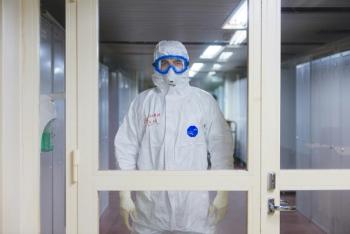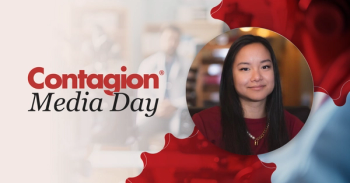
What Has the CDC Learned from the Ebola Outbreak of 2014-2015?
Stephen Redd, MD (RADM, USPHS), Director of the Office of Public Health Preparedness and Response, at the Centers for Disease Control and Prevention explains what they learned from handling the response to the Ebola outbreak in 2014-2015.
Stephen Redd, MD (RADM, USPHS), Director of the Office of Public Health Preparedness and Response (OPHPR), at the Centers for Disease Control and Prevention (CDC) explains what the CDC learned from handling the response to the Ebola outbreak in 2014-2015.
Interview Transcript (slightly modified for readability):
“The
From the standpoint that it didn’t need to happen the way that it did, there are several aspects to that. The first is that in West Africa in the countries that had the outbreak, the ability to detect it wasn’t really in place. [And] so, there was a three-month period when cases were occurring and it wasn’t known that Ebola was even in that part of the world. So, that initial ability to detect [wasn’t there.] Secondly, once it was detected, the response wasn’t what it needed to be to control it. That was both at the country level and at the international level. The international response wasn’t sufficient to bring the outbreak under control. By the time it was recognized as being the problem that it was in July and August of 2014, it was a whole lot more difficult to control [due to] the number of cases that were occurring and the chains of transmission that were happening all over the place in the three highly affected countries.
Putting in place measures to detect and respond effectively at both the country level and at the international response level [were extremely important to do as a result.]
The second part of the learning was that it could have been much worse. In August of 2014, a case was detected in Lagos, Nigeria. Lagos has a population that is greater than all three of the countries that were most highly affected, but a rapid response by the Nigerian Ministry of Health contained that outbreak. There were over 800 contacts that needed to be followed just following a very small number of cases. Ultimately, 20 cases occurred in Lagos and also in Port Harcourt in the eastern part of Nigeria. It’s part of the story that is not properly well-known that in Nigeria it was really a near-miss. An effective emergency operations center that was able to mobilize quickly to do contact tracing and isolate cases brought that outbreak under control.”
The response to [this outbreak] is to work with ministries of health and the global community to develop the capabilities to detect and respond rapidly. In situations where it’s possible to prevent outbreaks from occurring, putting those measures in place so the ability to detect, respond, and prevent for instances where outbreaks are preventable there’s a major global effort underway, the
Newsletter
Stay ahead of emerging infectious disease threats with expert insights and breaking research. Subscribe now to get updates delivered straight to your inbox.
































































































































